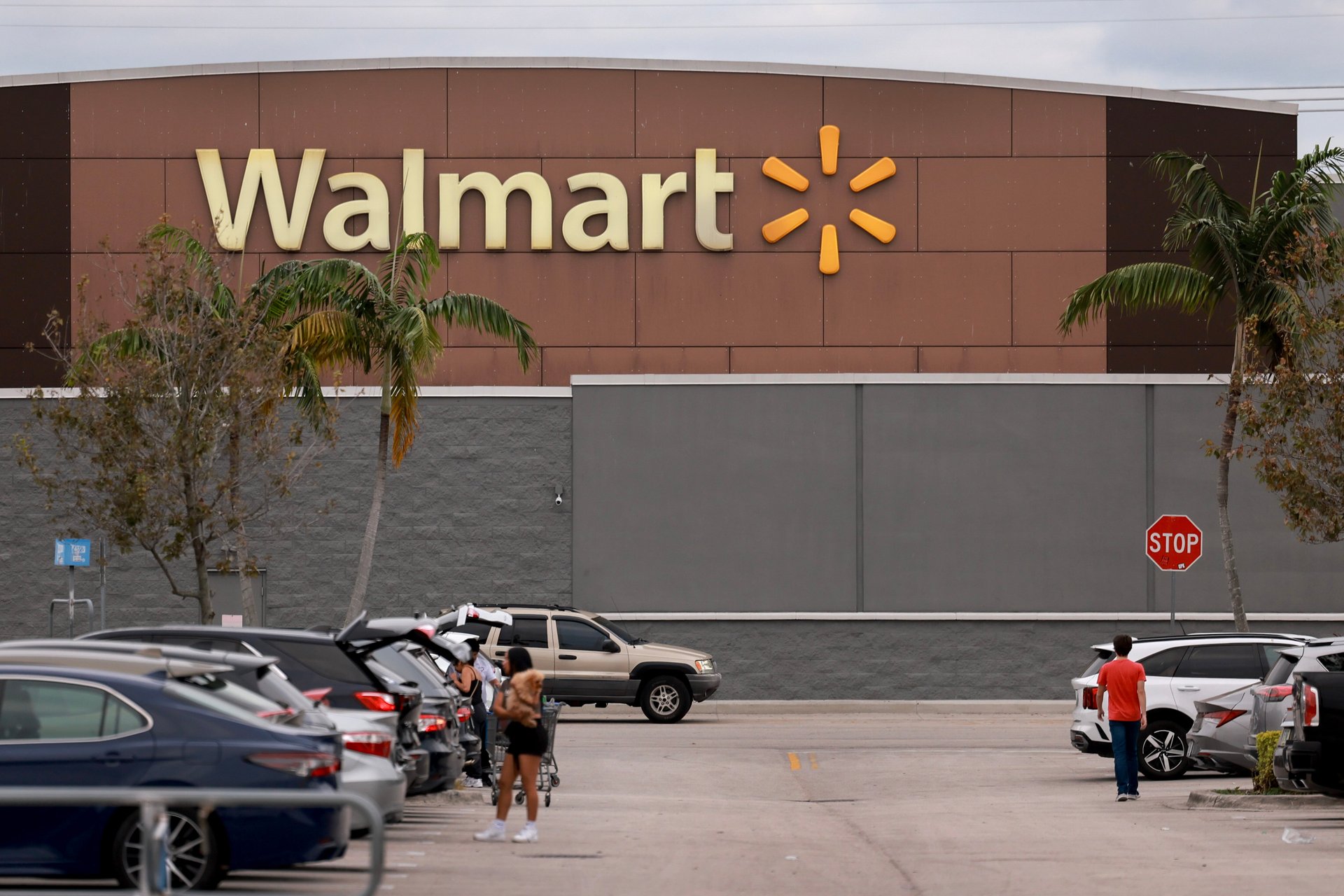Walmart, Best Buy, and other retail giants plummet as Trump tariffs bite
Retailers are bracing for price hikes and market tuberlance as tariffs set to take effect

Walmart, Best Buy, and other major retailers are already feeling the impact of President Donald Trump’s “Liberation Day” tariffs, which are set to take effect April 9. The initial 10% tariff will kick in this Saturday, April 5.
Suggested Reading
Other retailers, including Dollar General (DG), Dollar Tree (DLTR), Target (TGT), and Best Buy (BBY), are also taking a hit. Suffering the most damage thus far is Five Below (FIVE), whose shares plummeted over 20%, and Best Buy, which saw a nearly 12% drop. Retailers are bracing for the fallout, with many executives warning that rising costs could push prices higher for consumers.
Related Content
Retail giants like Walmart, Costco, and Target are reportedly racing to shift the tariff burden onto their Chinese suppliers, a move that could help them absorb some of the financial pressure. However, suppliers operating on razor-thin margins may pass those costs back to U.S. companies, potentially leading to higher prices for consumers on everyday items like fruits, vegetables, electronics, and apparel.
Walmart (WMT), Best Buy, and Target have already indicated they may raise prices should tariffs take effect. The National Retail Federation (NRF) recently issued a warning, projecting a slowdown in consumer spending for 2025 if tariffs continue to escalate. Both Gregory Daco, EY’s chief economist, and Sarah Wolfe, Morgan Stanley’s (MS) senior economist and strategist, expressed concerns that higher-than-expected tariff could increase everyday costs, putting a strain on household budgets and dampening consumer demand.
While there’s still time before the tariffs take effect, the uncertainty surrounding the trade measures is already rattling the retail sector. With major players searching for ways to offset rising costs, the final impact remains to be seen – but consumers may ultimately bear the brunt.
Not all retailer may be negatively impacted by the tariffs. According to recent upgrades by Citi (C) analyst Paul Lejuez, Ross Stores (ROST) and TJX Companies (TJX), could emerge as winners. Both companies, known for their discount offerings, have a key advantage: A significant portion of their merchandise is made in the U.S.
